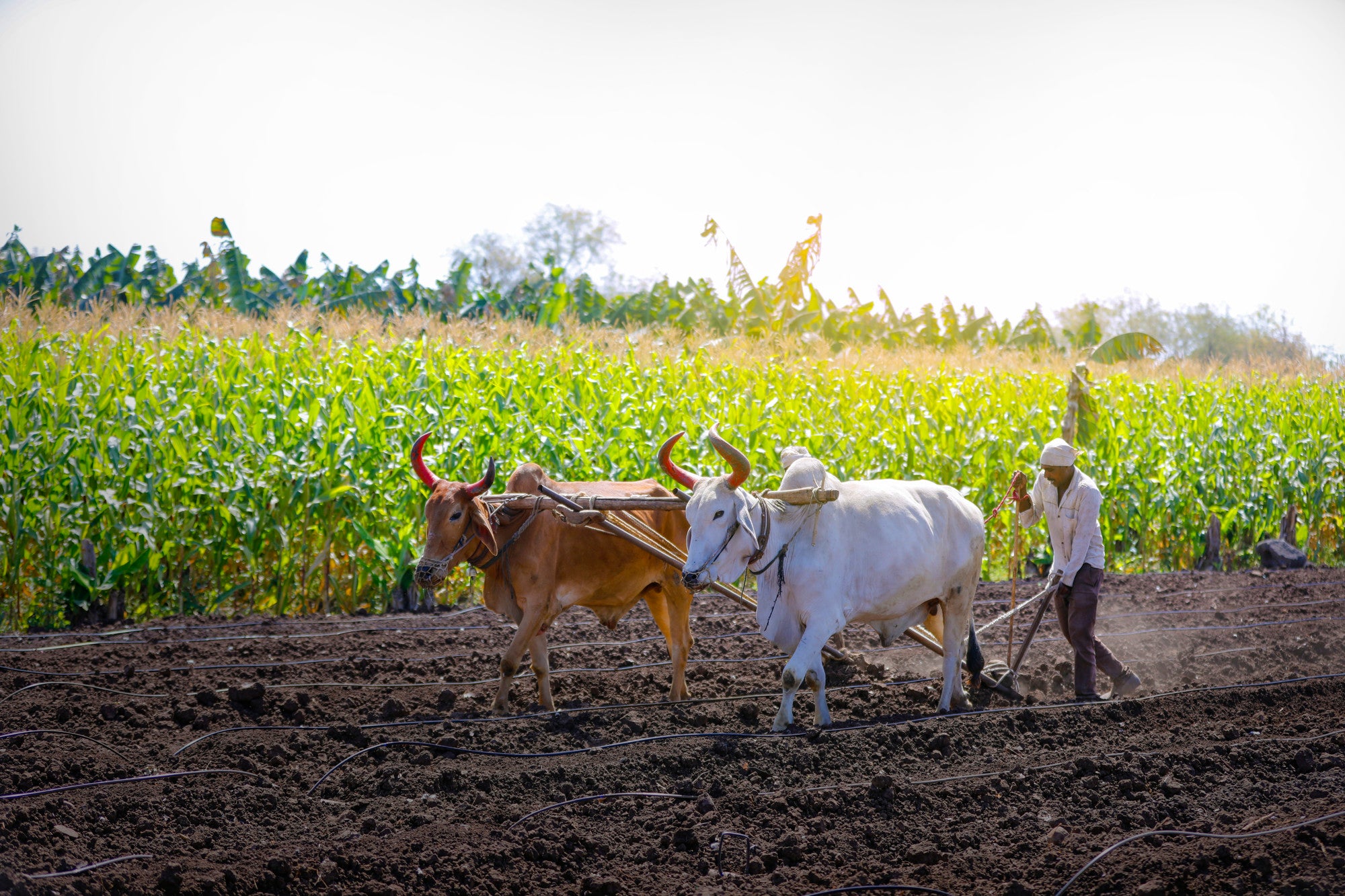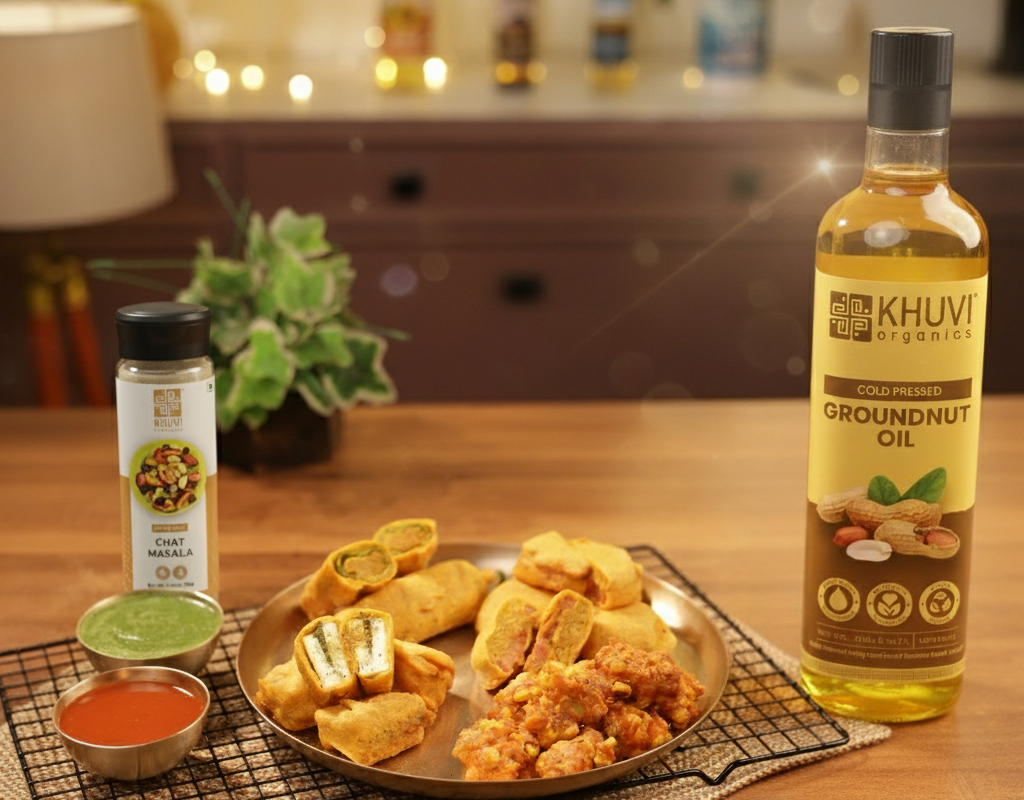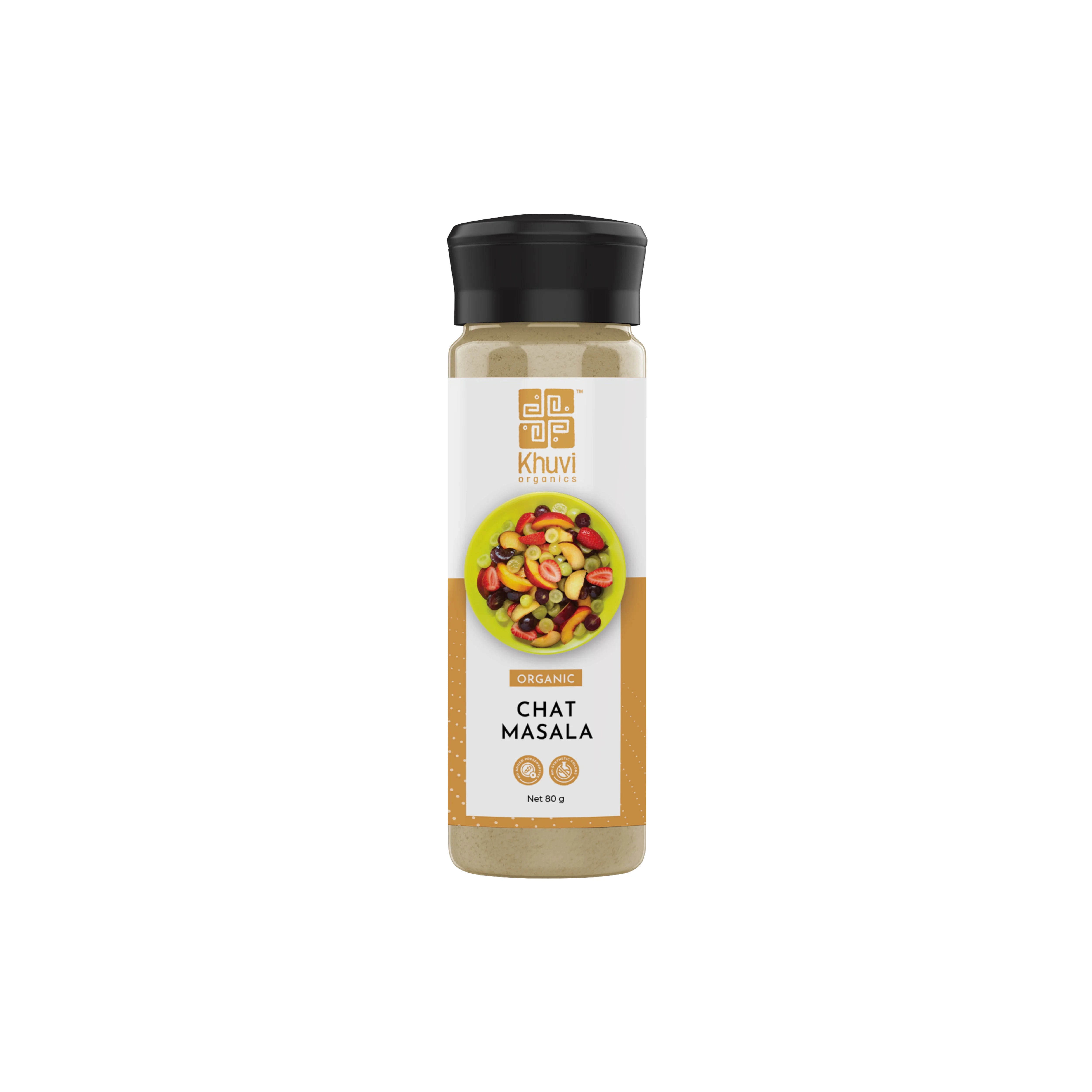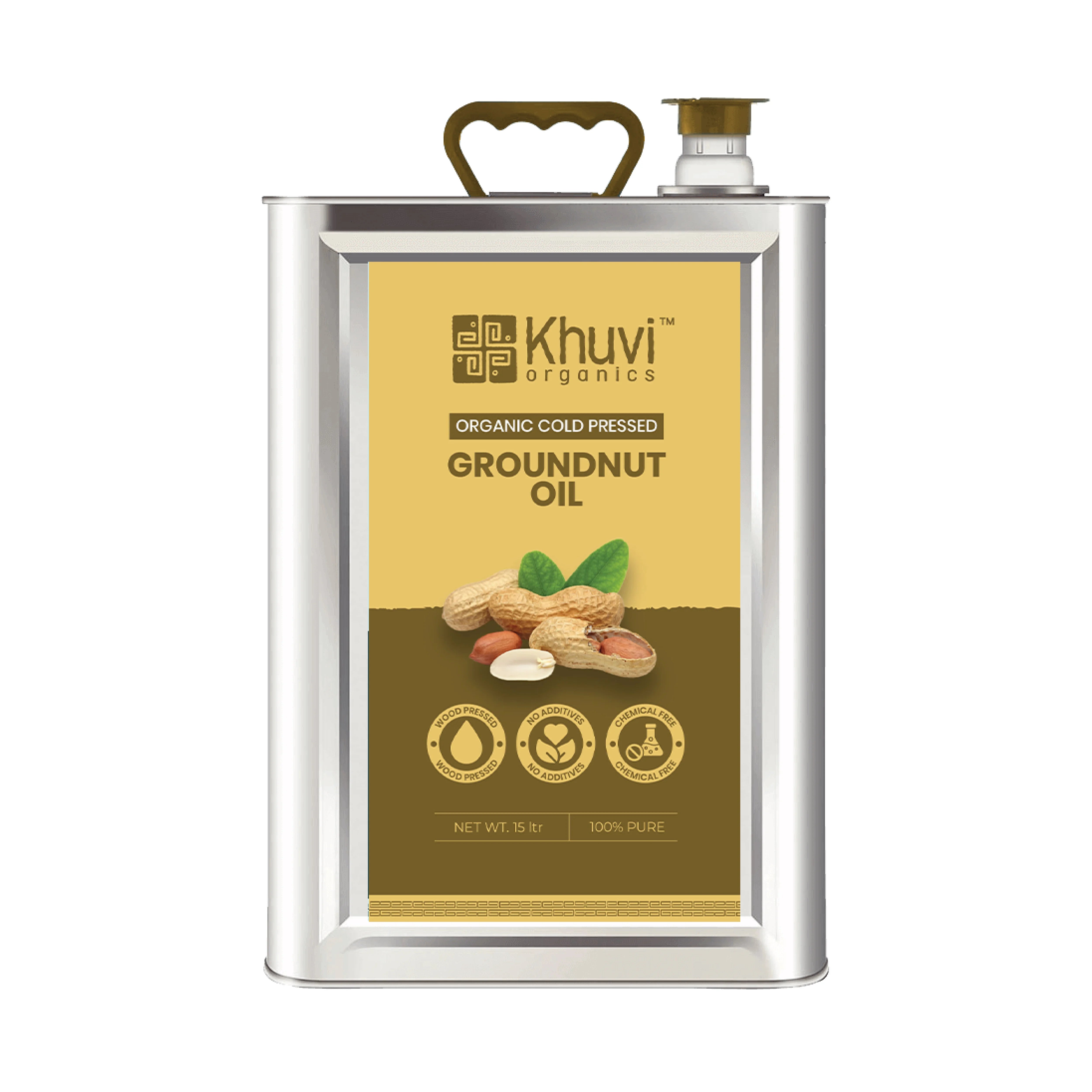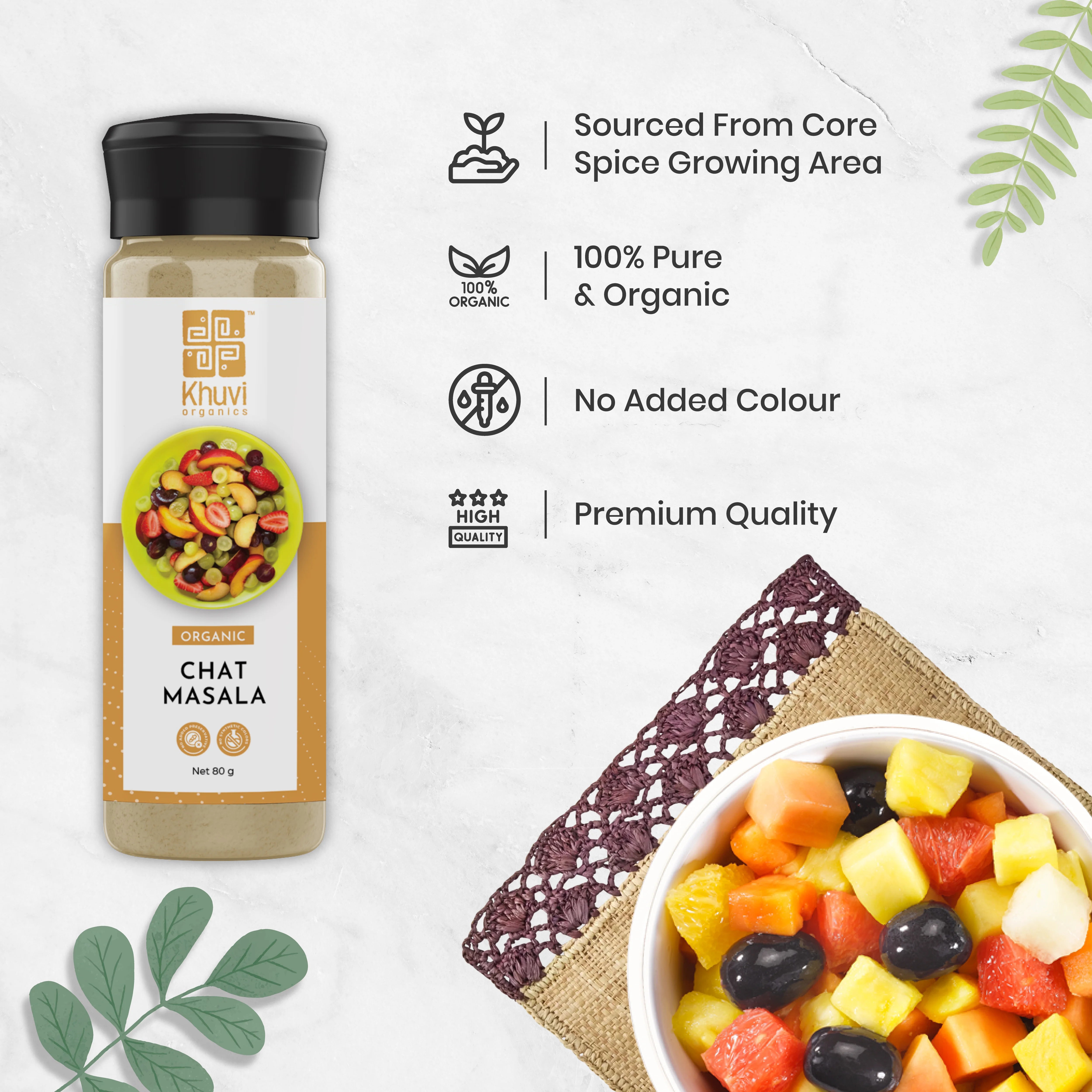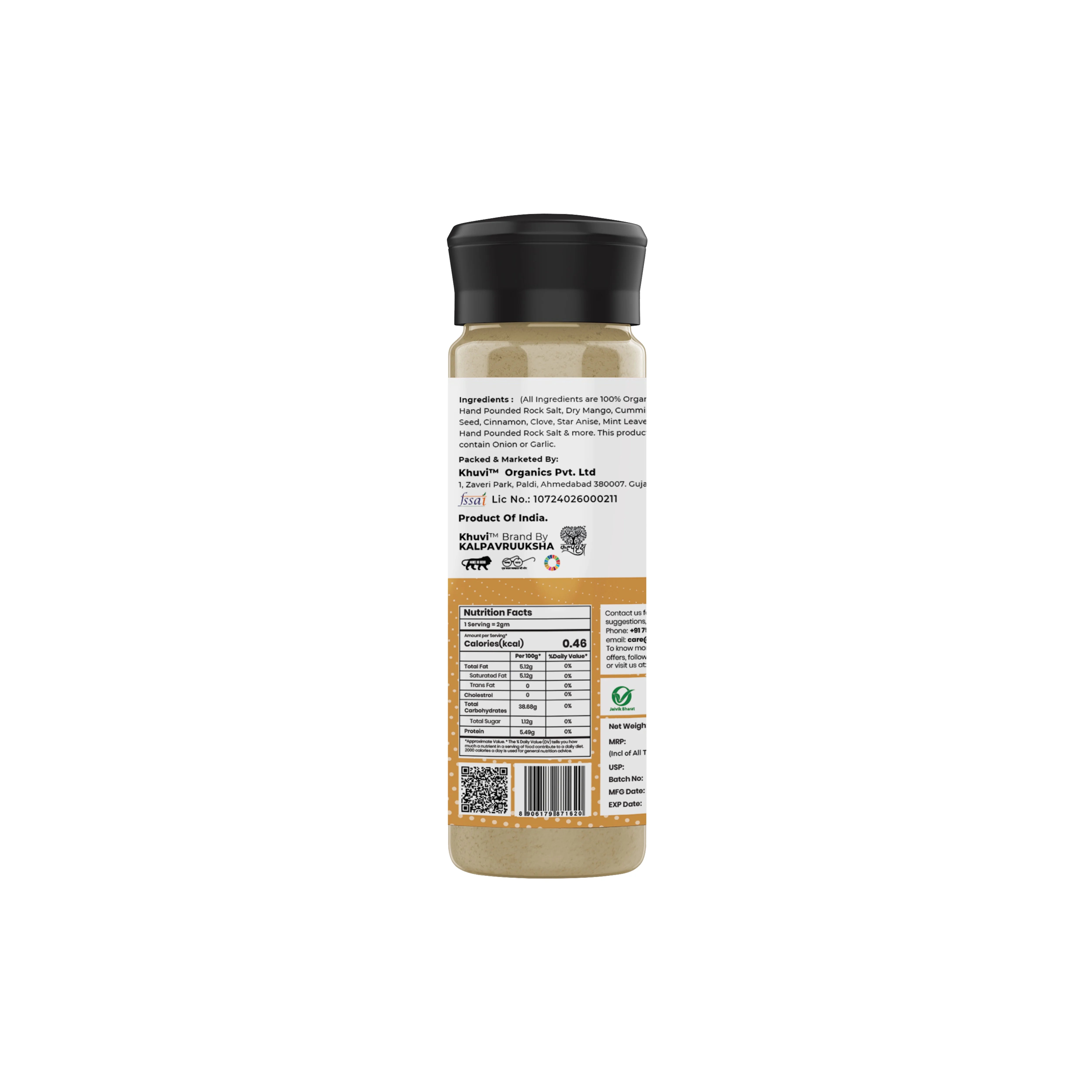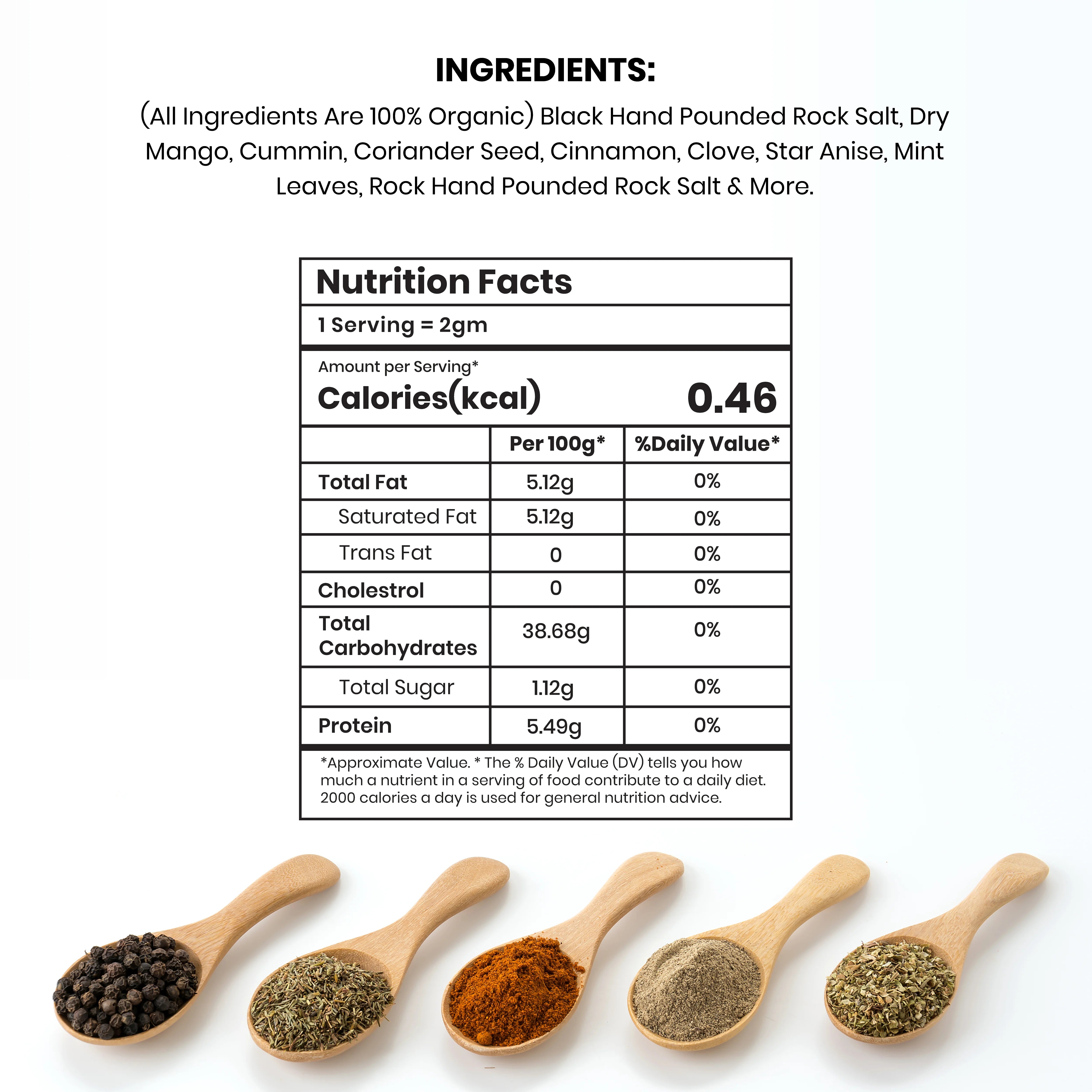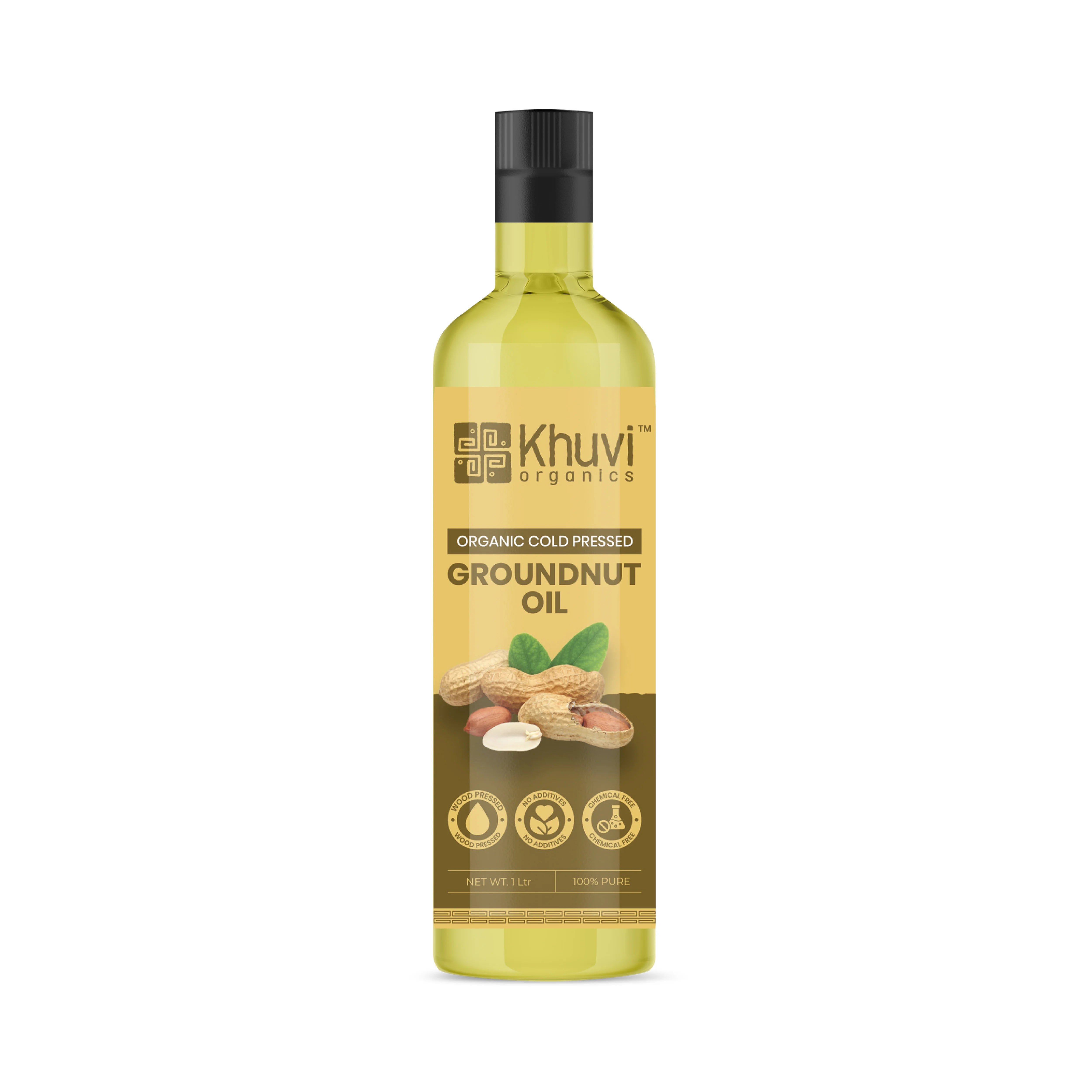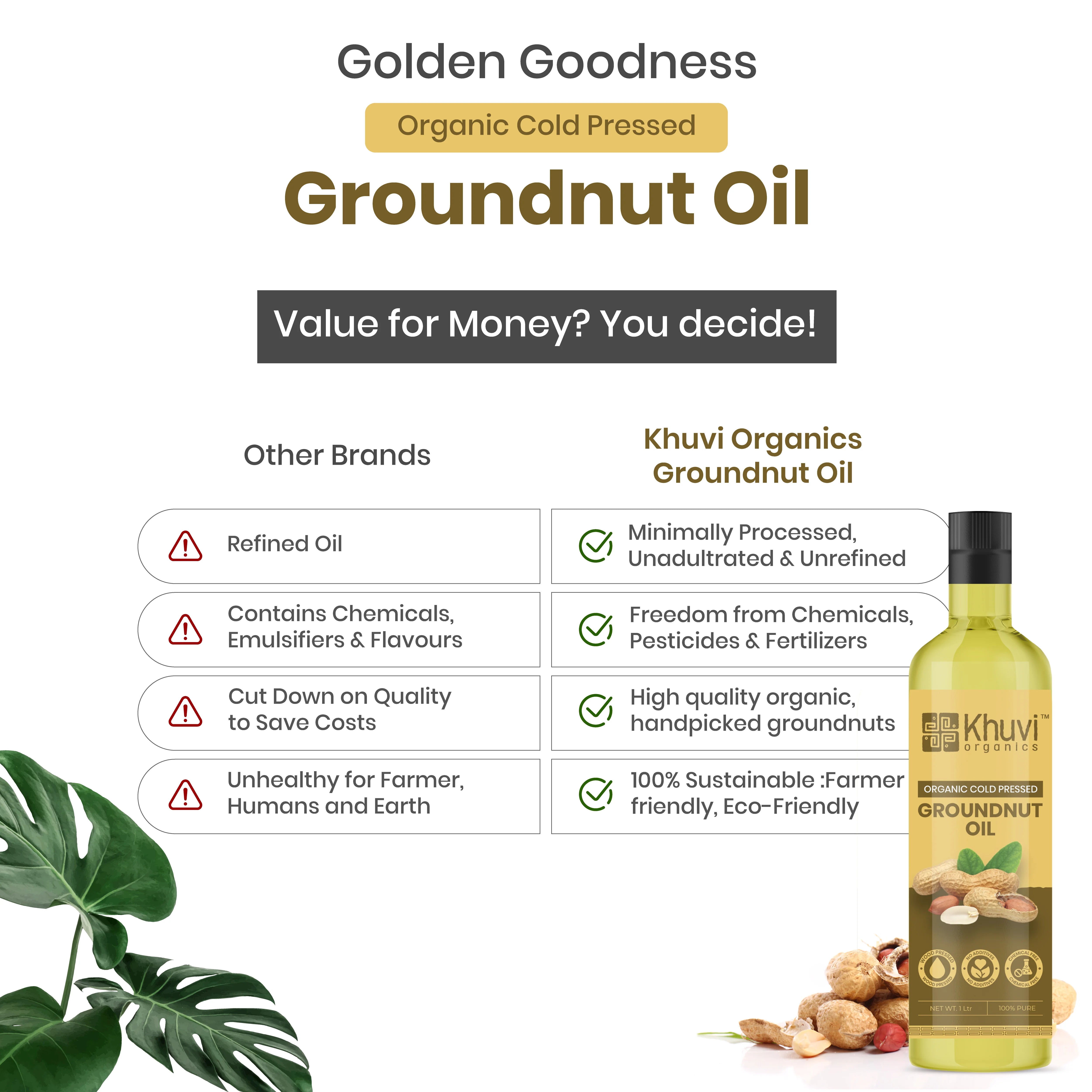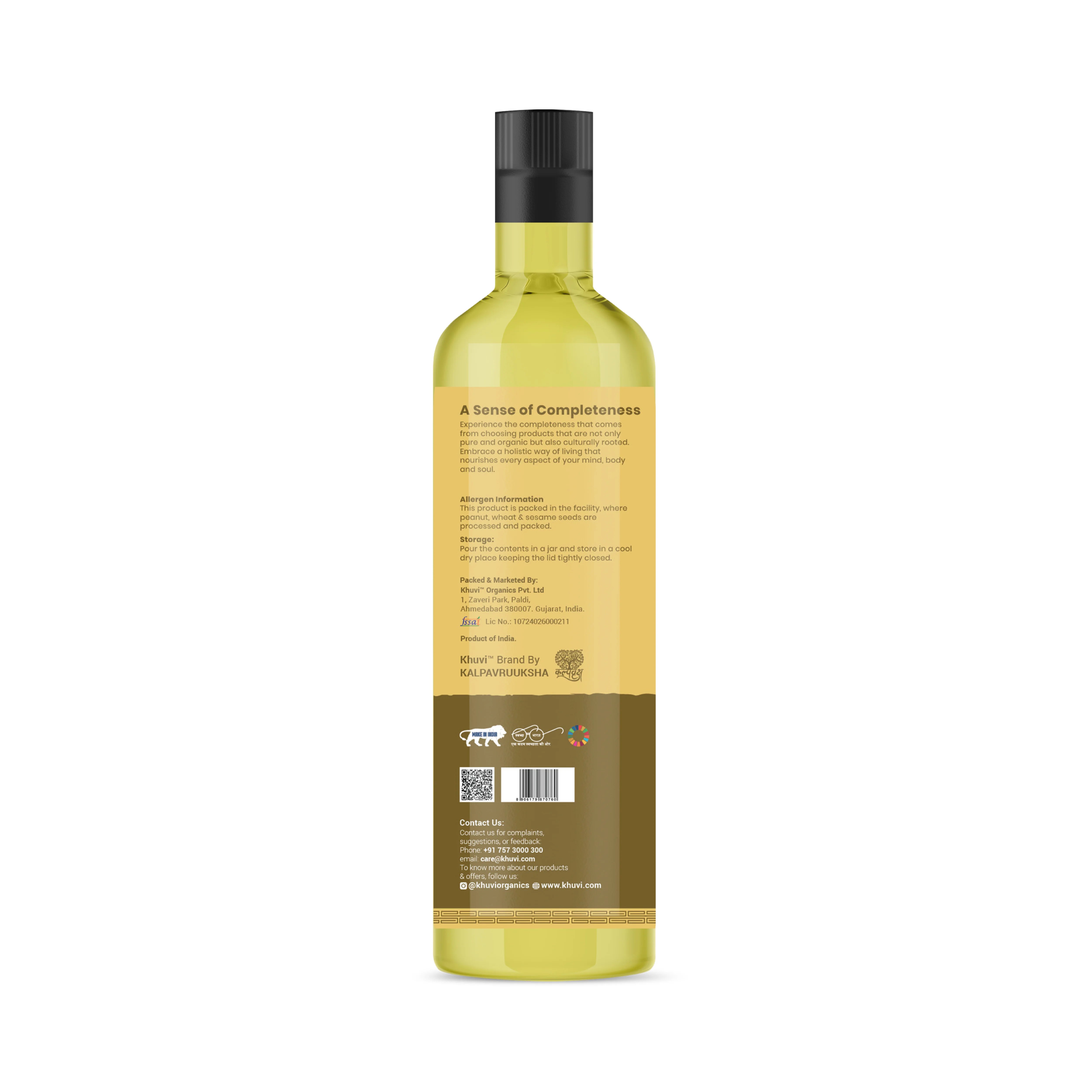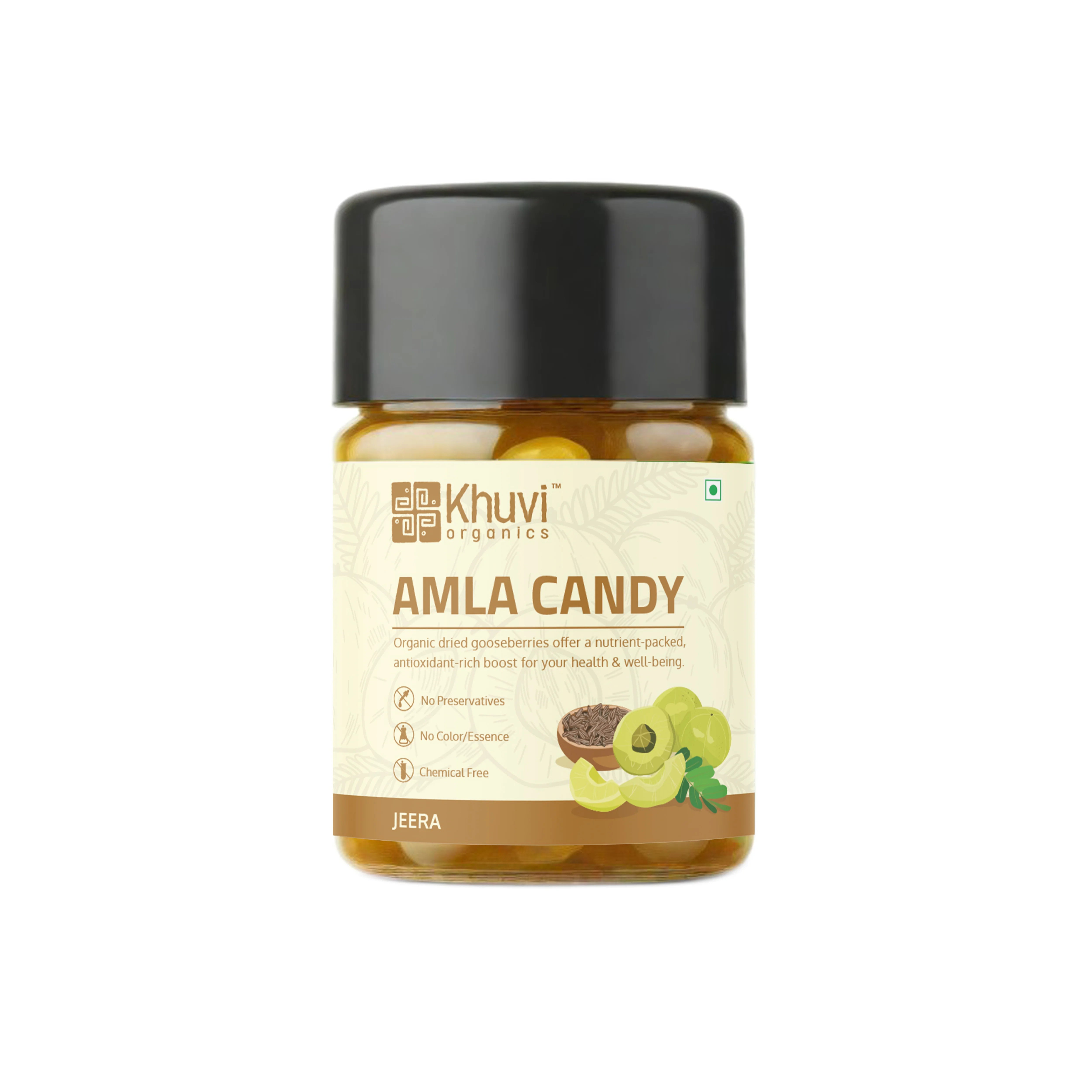
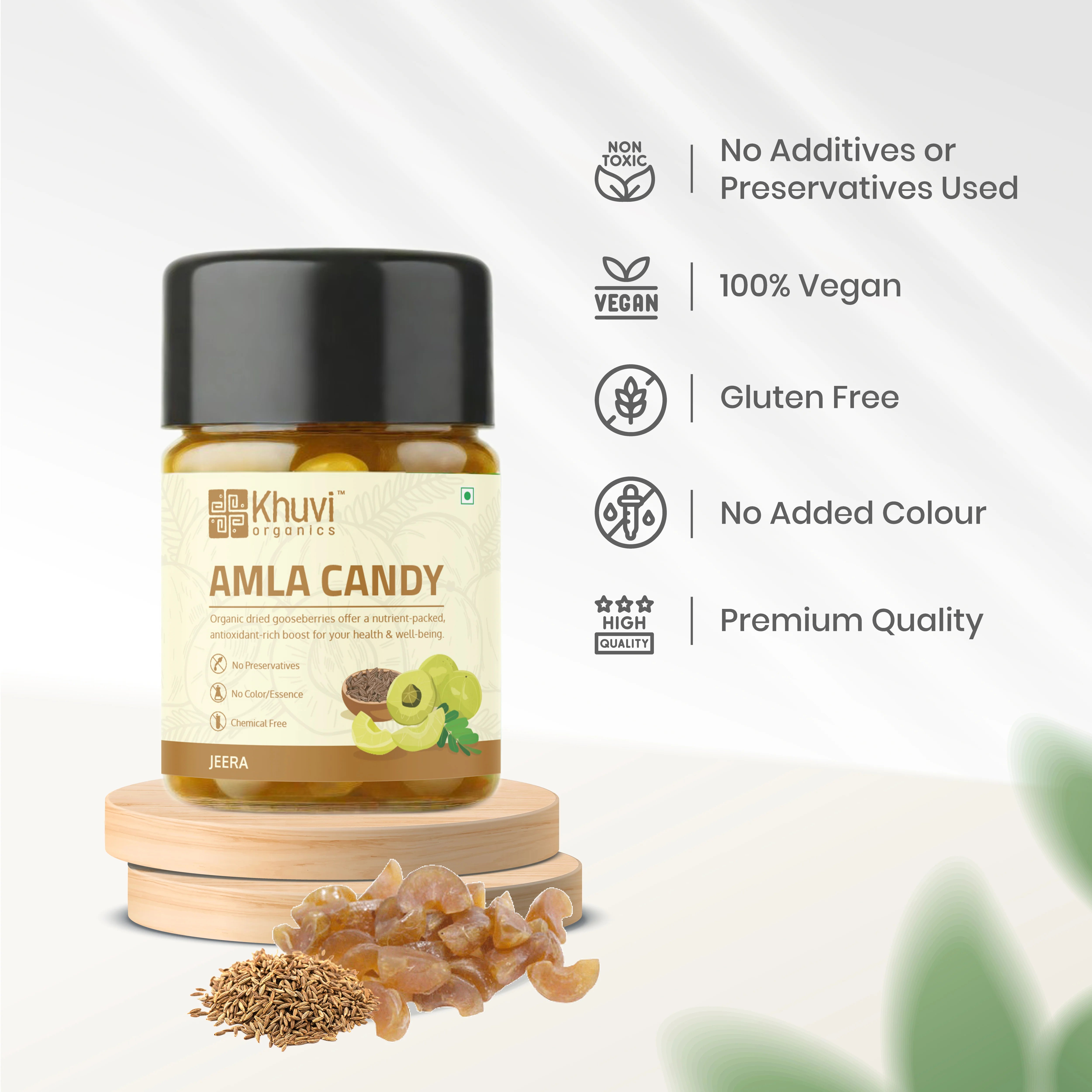
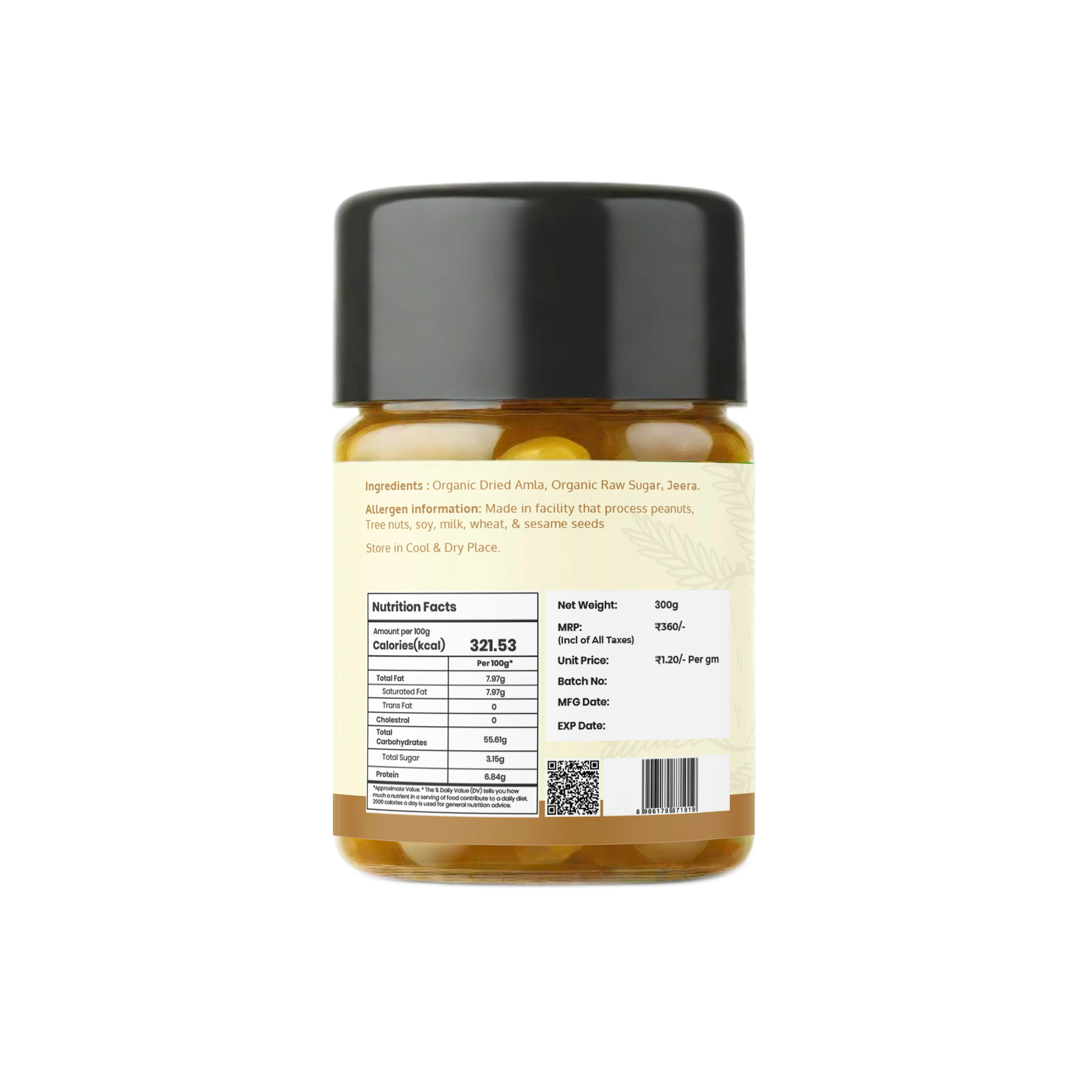
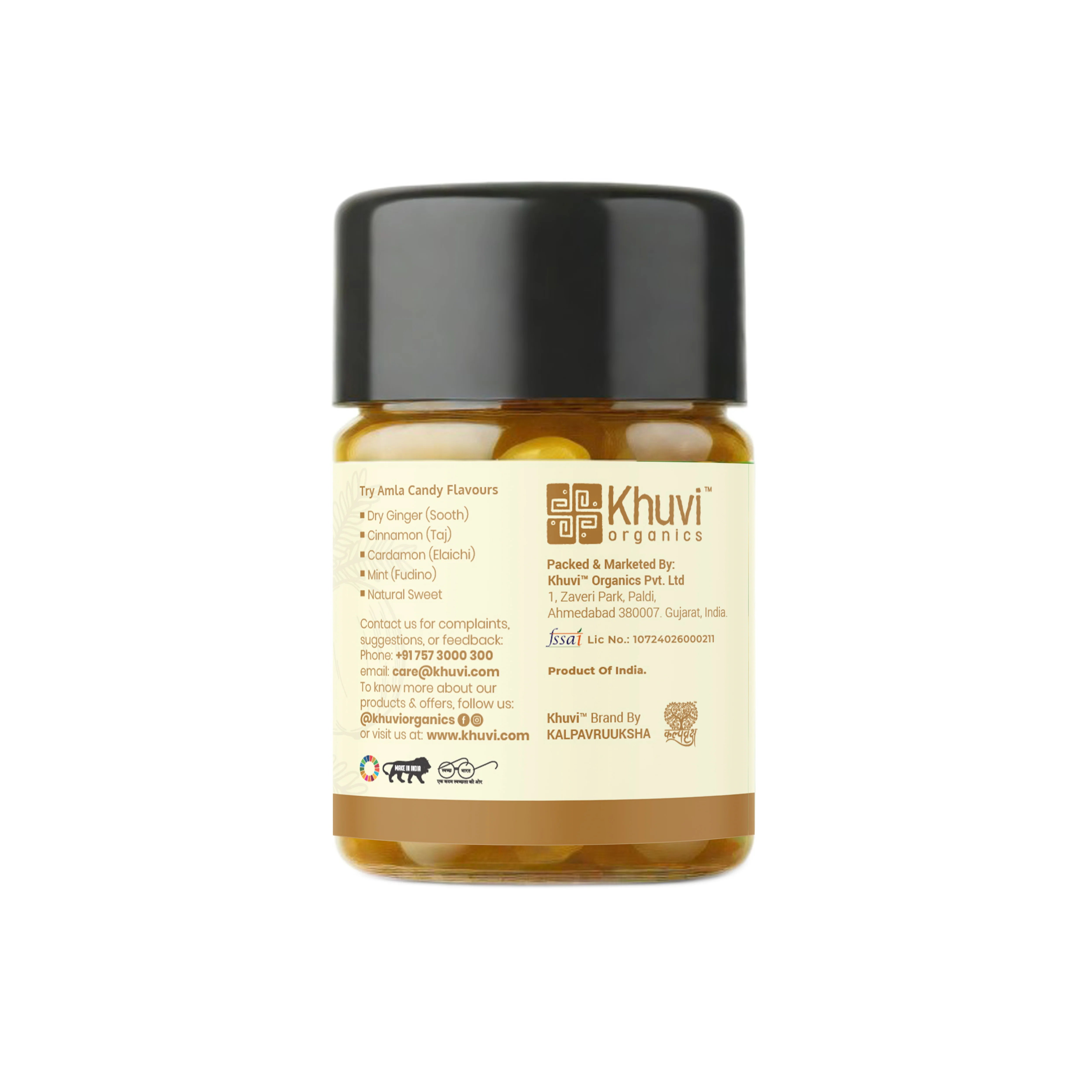
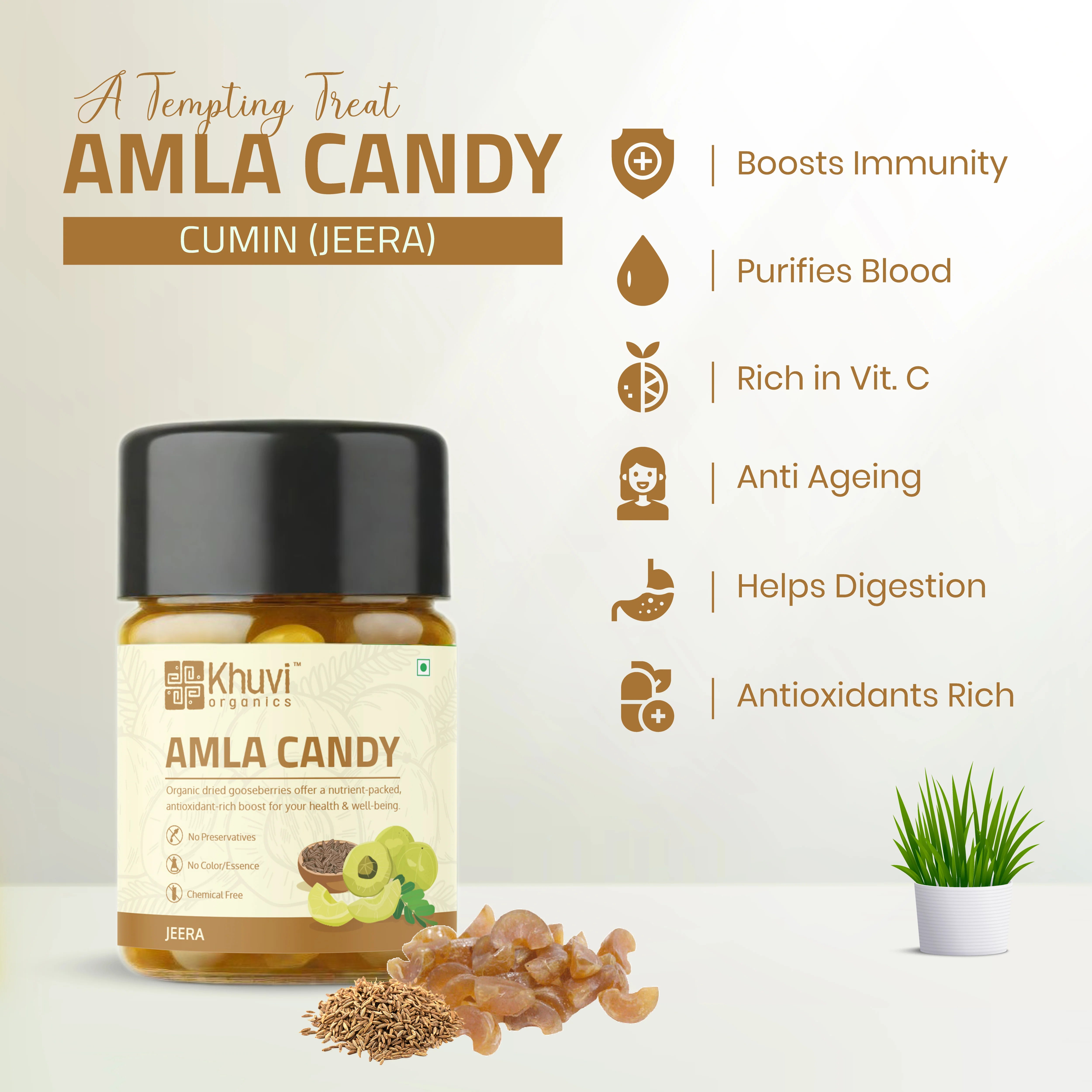
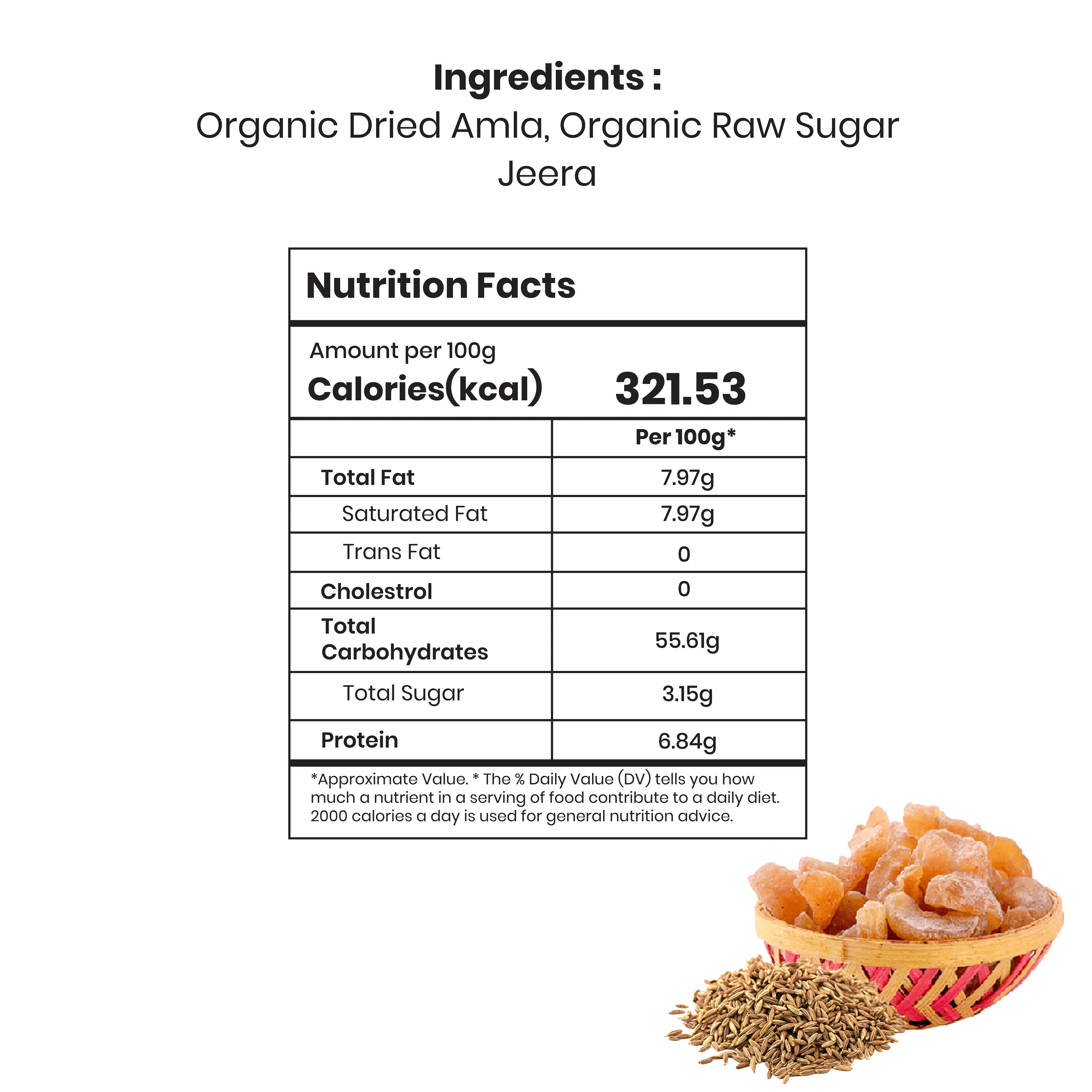
Aamla Sweet Candy - Cumin (Jeera)
Ingredients: Organic Dried Aamla, Organic Raw Sugar, Jeera
Pairs well with
Free Shipping Across India
Express Delivery Available
7 days Return/Exchange

Aamla Sweet Candy - Cumin (Jeera)
If you have any questions, you are always welcome to contact us. We'll get back to you as soon as possible, within 24 hours on weekdays.
-
Fast Free Shipping
Enjoy Free Shipping Across India – On Order Above ₹999/-
-
FlashDrop
IDelivery Across Ahmedabad in less than 120 minutes (10AM to 7PM)
-
Secure payment
Your payment information is processed securely
-
Contact Us
If Any Problem Contact Us
Call: +91 757 3000 300
Amla Sweet Candy, a delicious and nutritious treat made from the Indian gooseberry, also known as amla. Amla Sweet Candy is a popular Indian snack that is enjoyed by people of all ages for its unique taste and health Benefits.
Uses:
- As a Snack: Amla Sweet Candy can be enjoyed as a snack on its own or paired with other ingredients like nuts and seeds to create a healthy and satisfying snack.
- As a Mouth Freshener: Amla Sweet Candy can be used as a mouth freshener after meals to freshen up the breath and aid digestion.
- In Beverages: Amla Sweet Candy can be used as a sweetener in beverages like tea and smoothies, adding a unique and delicious taste to the drink.
- As a Medicine: Amla Sweet Candy has various medicinal properties and can be used to treat various health problems like indigestion and constipation.
- As a Gift: Amla Sweet Candy makes for a great gift for loved ones, showcasing the unique and delicious flavors of Indian cuisine.
- In conclusion, Amla Sweet Candy is a delicious and nutritious snack that offers numerous health Benefits and versatile Uses: in the kitchen. Its sweet and tangy taste makes it a popular choice among food and health enthusiasts, and its numerous health Benefits make it a must-try for those looking to enhance their health and wellbeing. So, go ahead and indulge in this delightful treat to experience the goodness of amla.
USP:
- No Added Color
- Zero Chemical
- Zero Pesticides
- High In Nutrients
what are the Aamla Sweet Candy benefit?
Explore The Essentials
Bring the Flavor Home






FAQs
Please read our FAQs page to find out more.
DO ORGANIC PRODUCTS TASTE DIFFERENT FROM CONVENTIONAL FOOD?
Many studies have shown that there is no such difference of taste in organic food and conventional food but the well-designed studies have researched and came to a conclusion like people favor the taste of organic food more, over conventional food. Because, the organic food has more antioxidants and other vitamins into it, which makes it tastier and better. And nowadays chefs do prefer to use organic food over conventional food not only for better taste but for better health benefits too.
WHAT IS AUTHENTICITY OF KHUVI?
Khuvi’s authenticity lies in the certifications. As we go through a rigorous process of getting our farms as well as our processing certified. Also, we are getting certified by well-known accredited certification bodies.
WHY TO CHOOSE KHUVI?
Khuvi has certified Organic farms, processing units for raw materials, powdering, herbal extractions oil processing, and steam sterilization, which all together enables Kalpvruuksha to deliver organic products with ultimate quality standards and purity.
DIFFERENCE BETWEEN ORGANIC AND CONVENTIONAL FOOD?
Growing
- Organic grown with natural fertilizers (manure, compost).
- Conventional grown with synthetic chemical fertilizers, pesticides etc.
Weeds
In Organic weeds are controlled naturally (crop rotation, hand weeding, mulching, and tilling).
In conventional weeds are controlled with chemical herbicides.
- Pets
- Organic, pests are controlled using natural methods (birds, insects, trap crops) and naturally-derived herbal pesticides
- Conventional, pests are controlled with synthetic pesticides
WHY ORGANIC FOODS ARE COSTLIER?
- Organic products are usually priced more compared to the conventional products due to the following reasons,
- Less chemical means more labor work.
- Cost of Bio fertilizer for organic farming.
- Crop Rotation.
- Post-harvest handling cost.
- Organic Certification.
- Organic food grows slowly.

